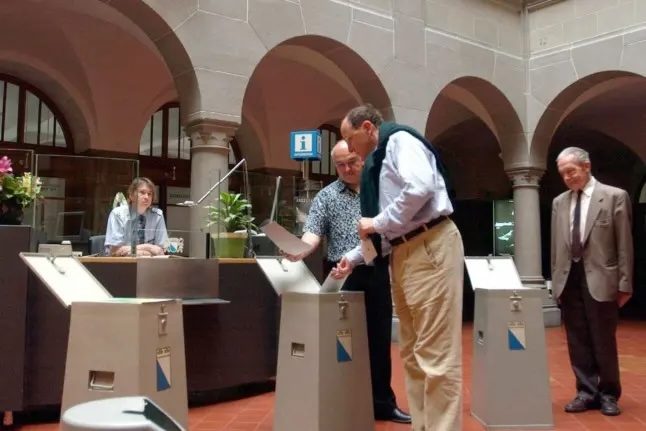The motion, which was brought before the Grand Conseil, the canton’s legislative body, by Green Party MP Paloma Tschudi, was rejected last week by 43 votes against 42.
Tschudi argued that the police custom of publicly divulging the alleged offenders’ national origin fuels hatred and xenophobia.
“Nationality is not a determining factor in criminal actions,” she told Swiss television last week.
However, Marc Fuhrmann, president of the Geneva section of the Swiss People’s Party (SVP), said that banning the disclosure of the origin would be “an obstruction of freedom of the press worthy of the Soviet era”.
State Councilor Mauro Poggia, from the Christian Democratic People’s Party, agreed that by implementing the ban, “we would become censors”.
The debate over whether or not to reveal the nationality of suspects is not specific to Geneva and the practice differs from one canton to another.
The Vaud police “systematically disclose the age, origin and domicile of alleged perpetrators and victims, whether they are Swiss or foreigners,” a Vaud police spokesman told Le Temps.
In Neuchâtel, the police indicate the nationality of perpetrators and victims “only if there is a preponderant interest in understanding the context or the case”.
In Solothurn, citizens accepted in 2012 an SVP initiative requiring police and justice to give the nationality of offenders. The same law applies in St. Gallen since 2010.
In Zurich, however, the decision to stop this practice was taken in 2017.
According to official statistics, foreigners constitute more than 70 percent of prison population in Switzerland.



 Please whitelist us to continue reading.
Please whitelist us to continue reading.
Member comments